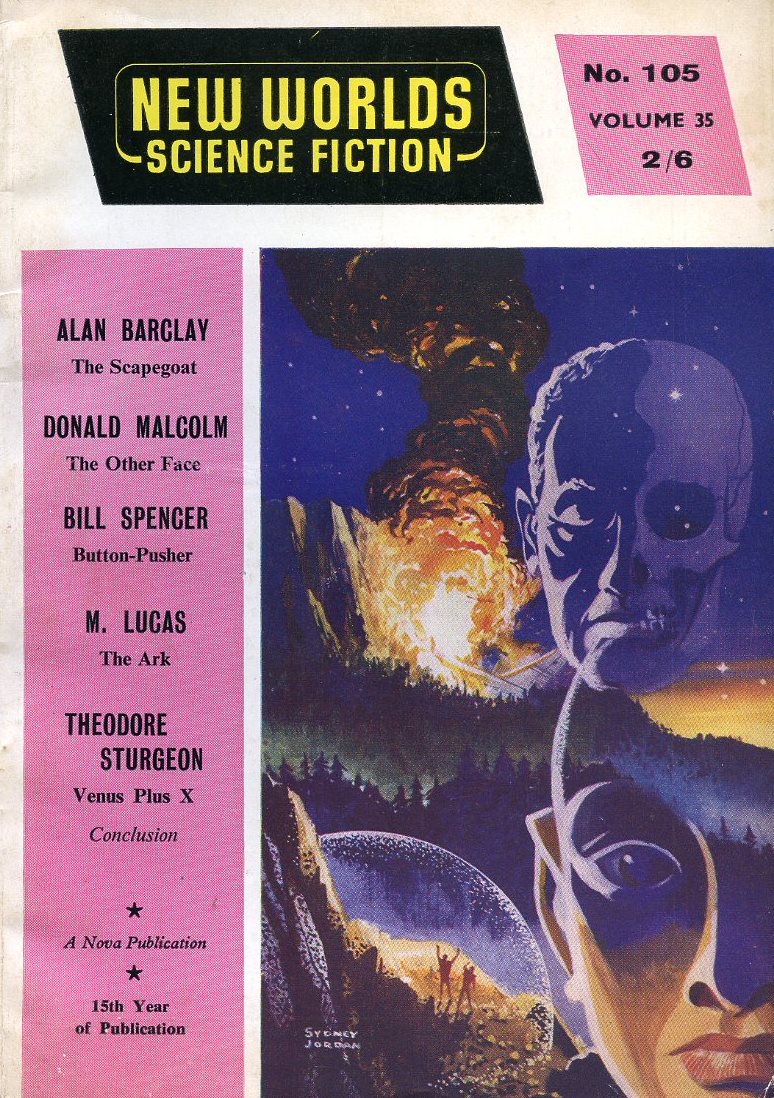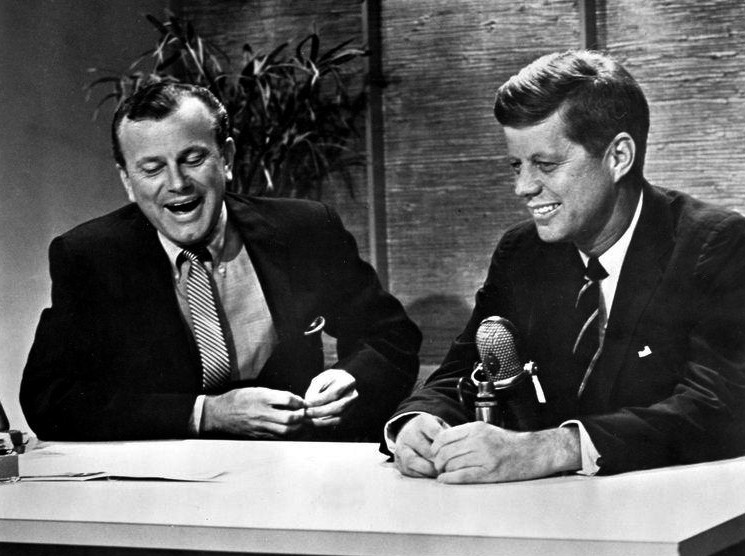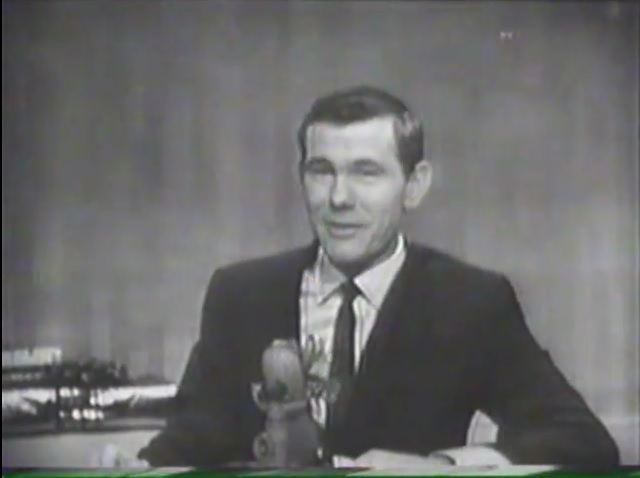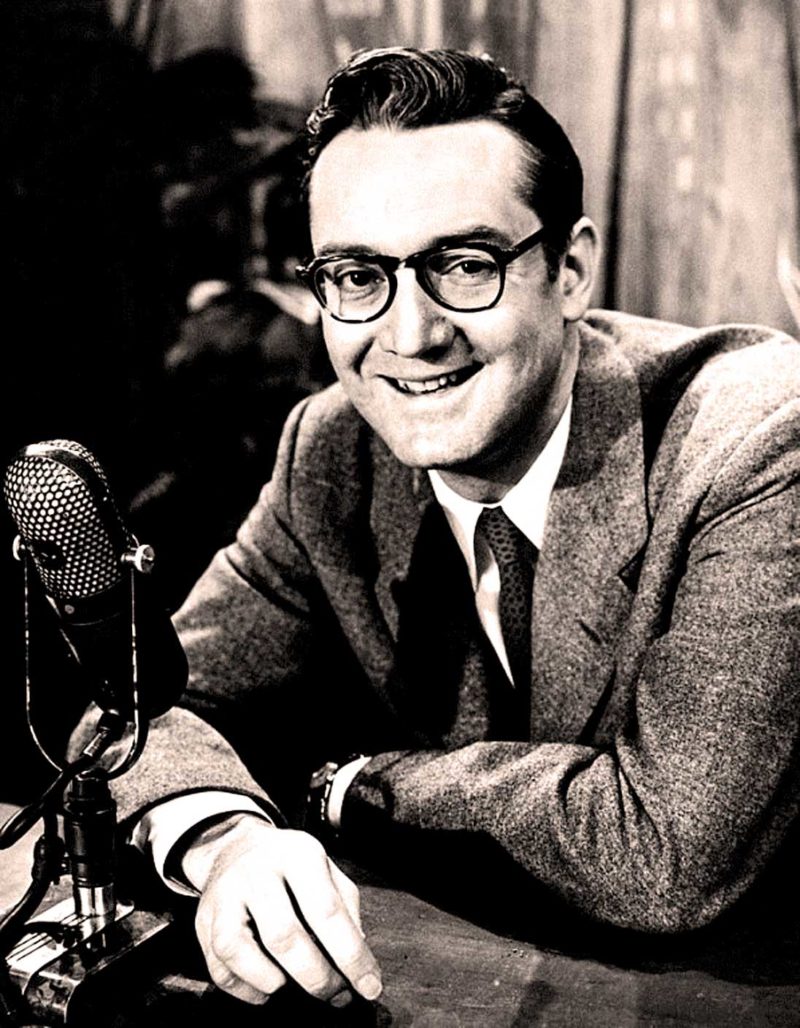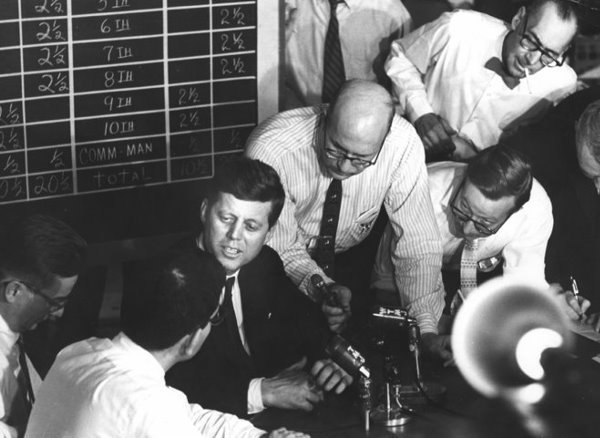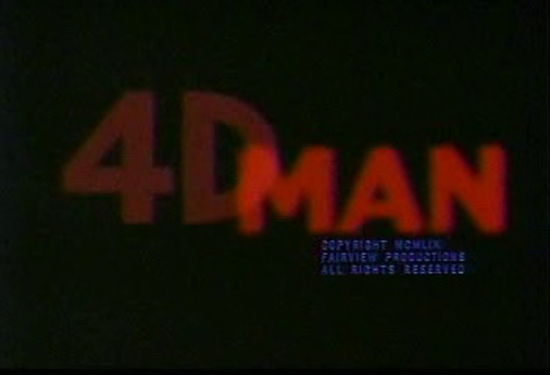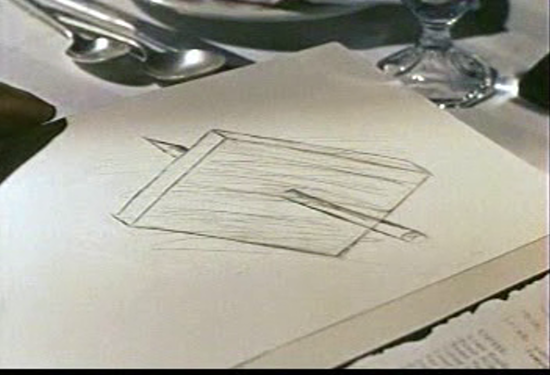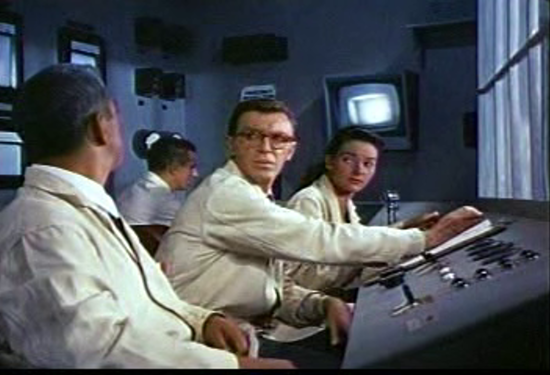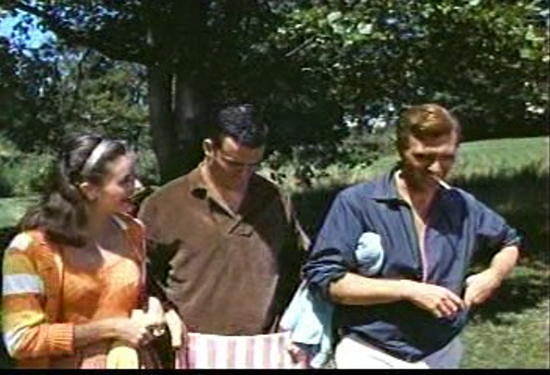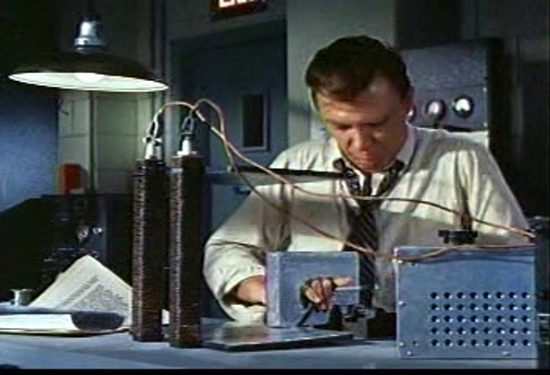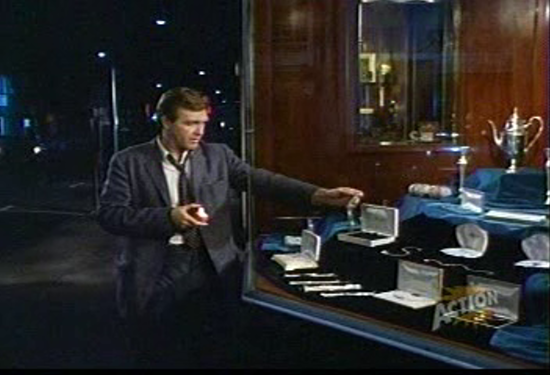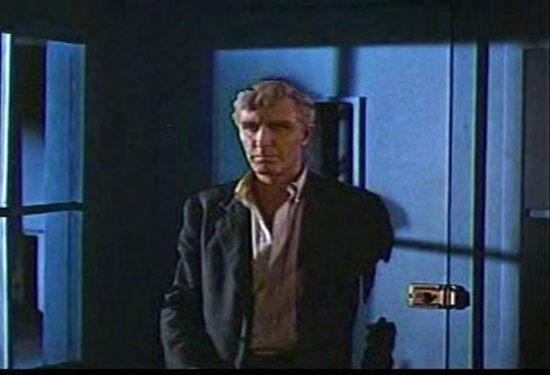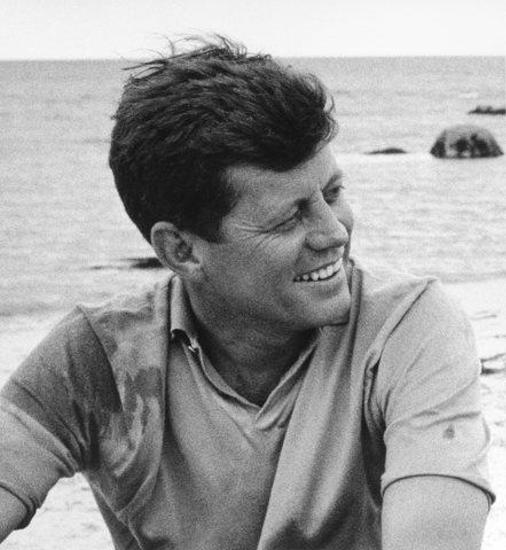
by Victoria Lucas
[Would you believe that the Traveller got scooped in his own home town? I knew JFK had been downtown, but I didn't know he'd been to (one of my) alma maters…]

(a thank you to SDSC for providing these pictures)
I really wish I had been able to be there. Fortunately my friend in San Diego came through again, and I’ve been drooling over the prints and tape she sent. She was at the commencement ceremonies on the 6th of June at San Diego State College (SDSC) when President John F. Kennedy was presented with an honorary doctorate in the Aztec Bowl. Kennedy is one of my favorite people, and I look forward to voting for him when I vote in my first presidential election next year.
Not for the first time, Kennedy was the star of a motorcade. This one went down a main drag (El Cajon Boulevard) in San Diego
as he sat and stood in a limousine and rode from the airport on his way to San Diego State as Marines pushed the crowd back. His primary reason for this trip to San Diego was the inspection of local military installations, so he just picked up a degree on his way to Pendleton Hall for a ceremonial inspection of the nearby Marine Corps base.
Kennedy was accompanied in the limo by California Governor “Pat” Brown, Senator Thomas Eagleton, and Lionel Van Deerlin (whom you've read about here), the local member of the House of Representatives. Once at the college, he was nearly smothered in academics as he was hurriedly dressed in a cap and gown to join the academic procession to the officials’ platform.
It seems that in 1960 the California State Legislature authorized schools in the California State College system to grant honorary doctoral degrees "to individuals who have made unusual
contributions toward learning and civilization." This conferral of an honorary Doctor of Laws degree on JFK is the first time that power has been used to grant a degree.

There was quite a crowd, but anyone could stand at the top of the Aztec Bowl and watch the program, and photographers could sneak up and snap away if they could find a spot not already occupied by a dozen newsmen.
Of course every politician and dignitary for hundreds of miles wanted to be a part of this. With the Governor of California, “Pat” Brown, watching, it was California State College Chancellor Glenn Dumke and San Diego State College President Malcolm A. Love who performed the academic hooding ceremony with Kennedy. They then presented the newly minted doctor of laws to the faculty and officials on the platform and the commencement crowd.
The academic hood is a device that, despite its name, is not currently designed to be worn over the head. If you look closely at the color photo below, you will see that the President has something with a red trim across the front of his shoulders. That’s the hood. (The back is more colorful.) It carries the colors of the conferring institution, in this case red and black. Above you will see that both Dumke and Love are putting the “hood” over Kennedy’s head—that isn’t normally done. It really only takes one person (generally the academic advisor who worked with the student to earn the degree), but in this case it’s a wonder there were only two and there weren’t people fighting over it.
Once the “hood” was on his shoulders, Kennedy was introduced as the commencement speaker by California Governor Pat Brown and gave a thrilling commencement speech before being whisked away in a helicopter to the Marine Corps base for ceremonies there.

At least I found the speech thrilling. The tape I received of the short (20-minute) oration has some memorable quotes that I transcribed (which is something I do for money or even fun).
For those of you who couldn't be there, here's what the President had to say:
As an “instant graduate” of SDSC, Kennedy speaks about “the recognition by the citizens of this State [California] of the importance of education as the basis for the maintenance of an effective, free society.” He addresses the citizens of California before him, saying, “You recognize that a free society places special burdens upon any free citizen. To govern is to choose and the ability to make those choices wise and responsible and prudent requires the best of all of us.” Again, he emphasizes, “no free society can possibly be sustained, unless it has an educated citizenry whose qualities of mind and heart permit it to take part in the complicated and increasingly sophisticated decisions that pour … upon all the citizens who exercise the ultimate power. “
Moving on to a related but equally urgent problem, he asks “The first question, and the most important—does every American boy and girl have an opportunity to develop whatever talents they have? All of us do not have equal talent, but all of us should have an equal opportunity to develop those talents. Let me cite a few facts to show that they do not.”
These “few facts” include the inequality of spending on public schools in various states, the inequality of graduation rates among whites and the “nonwhite population,” and the inequality of age of the school buildings they attend. He states the obvious, then, that “American children today do not yet enjoy equal educational opportunities for two primary reasons: one is economic and the other is racial.“
The next bit, it seems to me, indicates a direction for public policy that Kennedy advocates: “ If our Nation is to meet the goal of giving every American child a fair chance, because an uneducated child makes an uneducated parent who, in many cases, produces another uneducated child, we must move ahead swiftly in both areas. And we must recognize that segregation and education and I mean de facto segregation in the North as well as the proclaimed segregation in the South, brings with it serious handicaps to a large proportion of the population.”
He went on to speak about the resulting “increasingly unskilled labor available,” which, along with an “increasing population” of young people, forms “one of the most serious domestic problems that this country will face in the next 10 years.”

Worse than that, the illiteracy rate “in this rich country of ours” is so high that illiterate people “constitute the hard core of our unemployed. They can’t write a letter to get a job, and they can’t read, in many cases, a help-wanted sign.” He quotes Francis Bacon: “Knowledge is power."
Yes, he does mean to make policy:
“Government must play its role in stimulating a system of excellence which can serve the great national purpose of a free society. And it is for that reason that we have sent to the Congress of the United States legislation to help meet the needs of higher education …. We have to improve, and we have so recommended, the quality of our teachers … and … to strengthen public elementary and secondary education …. And finally, we must make a massive attack upon illiteracy in the year 1963 in the United States ….”

Lastly:
“I recognize that this represents a difficult assignment for us all, but I don’t think it is an assignment from which we should shrink.” He pointed out how the birth rate is “going to pour into schools and our colleges in the next 10 or 20 years and I want this generation of Americans to be as prepared to meet this challenge as our forefathers did in making it possible for all of us to be here.”
In short, he called his privileged audience to account for its advantages and challenged them to bring others up to their level.
It’s about time.

















